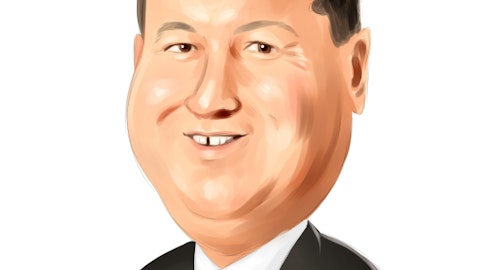LONDON — If the long-run return on the market is 9.4% (as researchers at Credit Suisse Group AG (ADR) (NYSE:CS) say), investing in shares should be a no-brainer. Somehow, however, all too often our portfolios don’t seem to reflect that attractive performance.
This is partly because that 9.4% number is an average derived from 100 years of data. Picking various time periods within that 100 years gives very different outcomes — and the market almost never actually returns 9.4% in any single year.

In this series of articles, I’m looking at how individual shares have performed against the FTSE 100 during the past 10 years. Today, I’m assessing drinks giant Diageo plc (ADR) (NYSE:DEO).
Over the past decade, Diageo’s performance has handily beat that of the FTSE 100.

Source: S&P Capital IQ.
Since February 2003, Diageo’s shares have had celebration-worthy average annual return of 15.9% — far outstripping the FTSE 100’s 9.4% annual average (these return calculations assume dividends were reinvested). However, as we can see in the preceding chart, the real outperformance has happened since August 2011, with Diageo’s shares returning 63% compared with the FTSE 100’s 16%.
These impressive returns have come despite the fact that Diageo’s shares have historically traded well above the market price-to-earnings (P/E) ratio — which has averaged about 13 over the past 10 years. Some investors are willing to pay up for quality, and Diageo’s broad portfolio of top-selling brands — including Johnnie Walker, Smirnoff, and Guinness — and global reach are exactly the type of qualities that set a company apart from its competitors.

Sources: S&P Capital IQ and Thomson Reuters.
One possible explanation for Diageo’s recent outperformance is that following the American debt-ceiling crisis in August 2011, investors who weren’t already in the shares for the attractive income — although the yield is currently an unimpressive 2.3%, mainly a result of the recently rocketing share price — flocked to the stability the company’s products and global reach offer. It doesn’t hurt the company’s image of reliability that Diageo has increased its dividend every year this century at an average annual rate of 6%.
Investors looking to buy the shares today need to recognize that the shares are trading at historically high levels, and while the steady income offered may be reassuring, it can take quite a few dividend payments to recoup the capital losses if the shares fall out of favor.
Diageo is a high-quality company and has provided handsome returns for long-term shareholders. However, at current prices, it appears buyers could find themselves fighting a portfolio hangover.
Large caps for the long run
If you’re tempted by Diageo’s income growth but its super-premium shares are too rich for your taste, you might be interested in this exclusive in-depth report.
The article Stocks for the Long Run: Diageo vs. the FTSE 100 originally appeared on Fool.com and is written by Nate Weisshaar.
Nate Weisshaar owns no shares mentioned in this article. The Motley Fool recommends Diageo.
Copyright © 1995 – 2013 The Motley Fool, LLC. All rights reserved. The Motley Fool has a disclosure policy.




